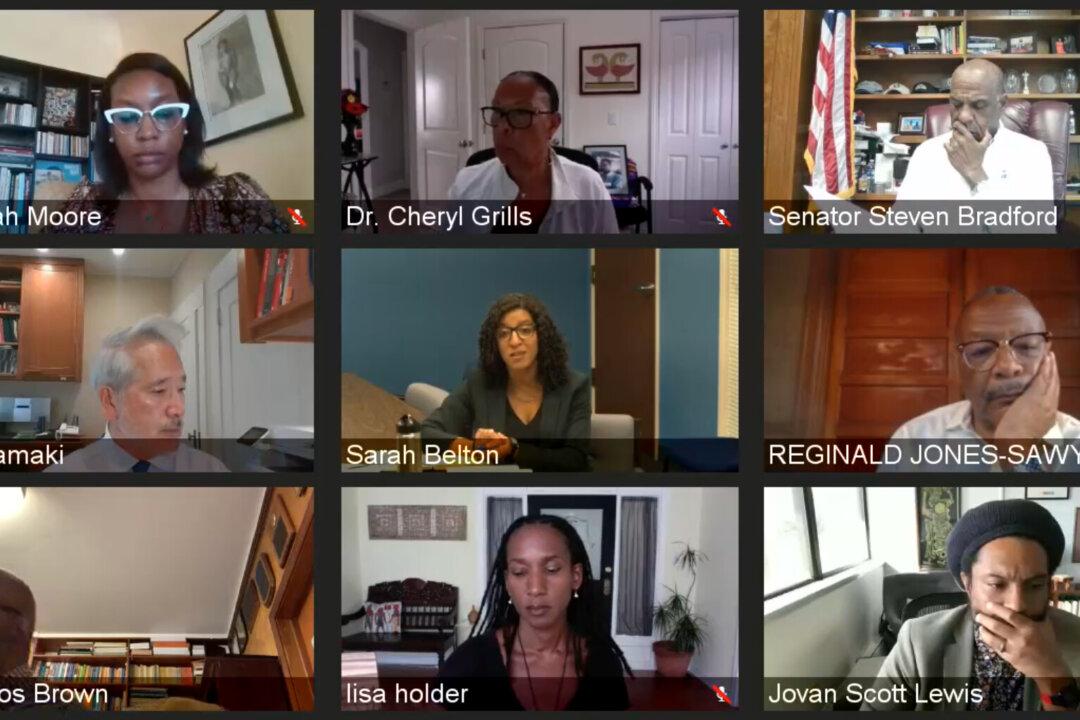Several members of a state-mandated Reparations Task Force accused the California Department of Justice (DOJ) staff of overreach over the removal of agenda items and the refusal to facilitate public hearings on Saturdays.
Assembly Bill 3121 requires the DOJ to provide administrative, technical, and legal assistance to the Task Force to Study and Develop Reparation Proposals for African Americans. The task force, which held its first meeting June 1, has two years to draft an apology to the descendants of slaves and recommend ways the state might to compensate them.





